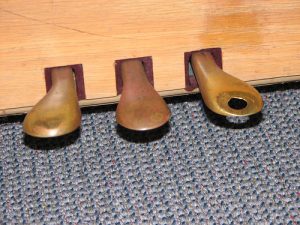Have you ever listened to a baby scream and cry for hours and wonder how such a small human can make such a powerful noise? Or have you ever noticed how when little kids sing, their voices are almost always loud and strong? The ability to sing, speak, cry, etc. with power comes from using and controlling your diaphragm. If you know how to control your diaphragm correctly, you can improve your breath control, breath support, and lung capacity for singing or playing a wind instrument.
The Diaphragm
Your diaphragm is basically a dome-shaped muscle beneath your lungs. When you breathe in, your diaphragm contracts and lowers to allow your lungs to fill with air. When you breathe out, your diaphragm relaxes and rises back up. If you watch an infant cry, you’ll see his diaphragm visibly contract and relax. And when toddlers scream, you can see their stomachs expand and then forcefully contract as they shriek with all the power they can muster. They are using their diaphragms to add more support to their voice so that they sound louder and are more likely to get your attention (and get what they want).
A Tool for Breath Support
For young children and infants, this is a very emotional and instinctual reaction that their body naturally knows how to do. They may have no idea what their diaphragm is, and yet they’re using it to get out as much powerful sound as possible. But as you get older, you learn to control the urge to scream and cry for attention, and eventually your diaphragm is used mainly to help you breathe and for nothing else. While breathing keeps it strong, your diaphragm becomes lazy. With proper exercise, your diaphragm can give you the strength you need for breath support.
Your Diaphragm Can Give You Steadiness and Control
Learning to control your diaphragm will give you the precise control you need to make sure that your air flow is steady and supported. Steady, supported air flow means a steady, supported tone, whether you’re singing or playing an instrument. To exercise your diaphragm and increase your control, work on strengthening your abdominal muscles. Exercises focused on strengthening your core muscles (including your back muscles), increasing lung capacity, and strengthening your abs will help you here. You can also enhance your breath support by learning to take LOW BREATHS like your body naturally does while you sleep.
I work with my singing students and flute students on low breaths and using the diaphragm for breath support all the time, and it really makes a difference. It’s a fantastic tool to improve your power, strength, sound, and tone — and it’s right there in your body, just waiting to be exercised.



